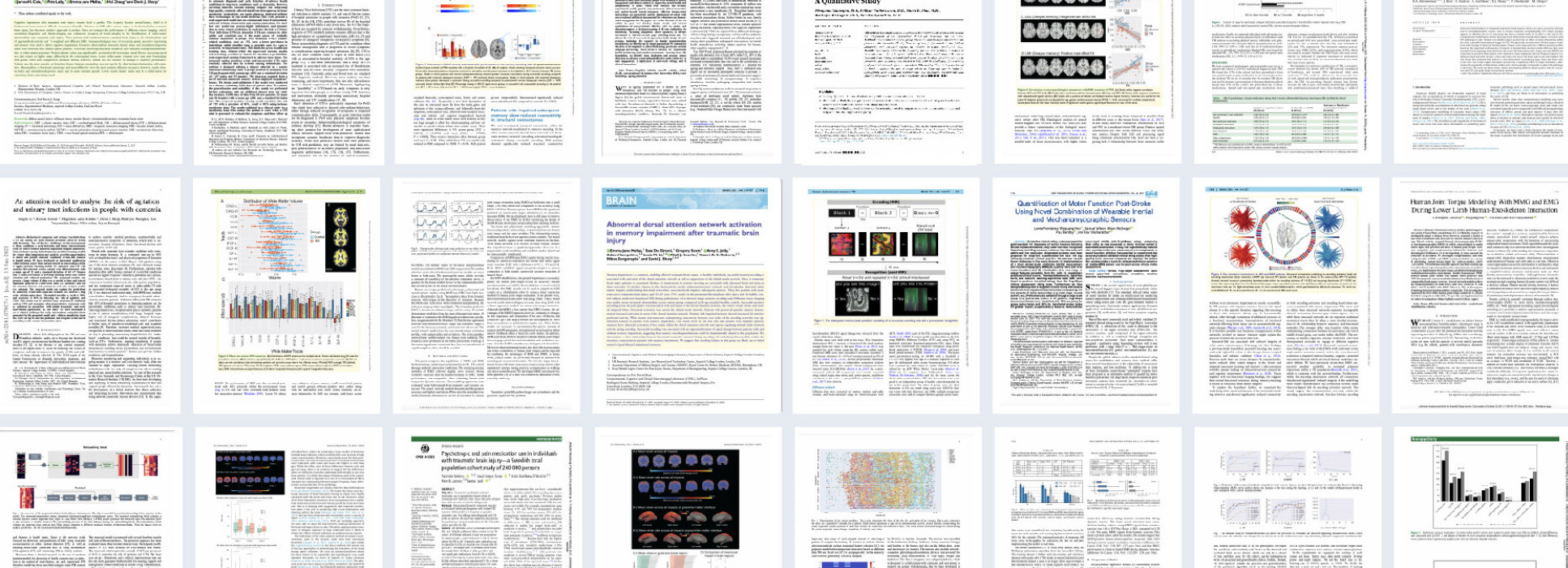BibTex format
@article{Crook-Rumsey:2023:10.1136/bmjopen-2023-072094,
author = {Crook-Rumsey, M and Daniels, S and Abulikemu, S and Lai, H and Rapeaux, A and Hadjipanayi, C and Soreq, E and Li, L and Bashford, J and Jeyasingh, Jacob J and Gruia, D-C and Lambert, D and Weil, R and Hampshire, A and Sharp, D and Haar, S},
doi = {10.1136/bmjopen-2023-072094},
journal = {BMJ Open},
pages = {1--9},
title = {Multicohort cross-sectional study of cognitive and behavioural digital biomarkers in neurodegeneration: the Living Lab study protocol},
url = {http://dx.doi.org/10.1136/bmjopen-2023-072094},
volume = {13},
year = {2023}
}
RIS format (EndNote, RefMan)
TY - JOUR
AB - Introduction and aimsDigital biomarkers can provide a cost-effective, objective, and robust measure forneurological disease progression, changes in care needs, and the effect of interventions.Motor function, physiology and behaviour can provide informative measures of neurologicalconditions and neurodegenerative decline. New digital technologies present an opportunityto provide remote, high-frequency monitoring of patients from within their homes. Thepurpose of the Living Lab study is to develop novel digital biomarkers of functionalimpairment in those living with neurodegenerative disease (NDD) and neurologicalconditions.Methods and analysisThe Living Lab Study is a cross-sectional observational study of cognition and behaviour inpeople living with NDDs and other, non-degenerative neurological conditions. Patients (n≥25for each patient group) with Dementia, Parkinson’s disease, Amyotrophic Lateral Sclerosis, Mild Cognitive Impairment, Traumatic Brain Injury, and Stroke along with controls (n≥60) willbe pragmatically recruited. Patients will carry out activities of daily living and functionalassessments within the living lab. The living lab is an apartment-laboratory containing afunctional kitchen, bathroom, bed and living area to provide a controlled environment todevelop novel digital biomarkers. The living lab provides an important intermediary stagebetween the conventional laboratory and the home. Multiple passive environmental sensors,internet-enabled medical devices, wearables, and EEG will be used to characterise functionalimpairments of NDDs and non-NDD conditions. We will also relate these digital technologymeasures to clinical and cognitive outcomes.Ethics and disseminationEthical approvals have been granted by the Imperial College Research Ethics Committee(reference number: 21IC6992). Results from the study will be disseminated at conferencesand within peer-reviewed journals.
AU - Crook-Rumsey,M
AU - Daniels,S
AU - Abulikemu,S
AU - Lai,H
AU - Rapeaux,A
AU - Hadjipanayi,C
AU - Soreq,E
AU - Li,L
AU - Bashford,J
AU - Jeyasingh,Jacob J
AU - Gruia,D-C
AU - Lambert,D
AU - Weil,R
AU - Hampshire,A
AU - Sharp,D
AU - Haar,S
DO - 10.1136/bmjopen-2023-072094
EP - 9
PY - 2023///
SN - 2044-6055
SP - 1
TI - Multicohort cross-sectional study of cognitive and behavioural digital biomarkers in neurodegeneration: the Living Lab study protocol
T2 - BMJ Open
UR - http://dx.doi.org/10.1136/bmjopen-2023-072094
UR - https://bmjopen.bmj.com/content/13/8/e072094
UR - http://hdl.handle.net/10044/1/105703
VL - 13
ER -




